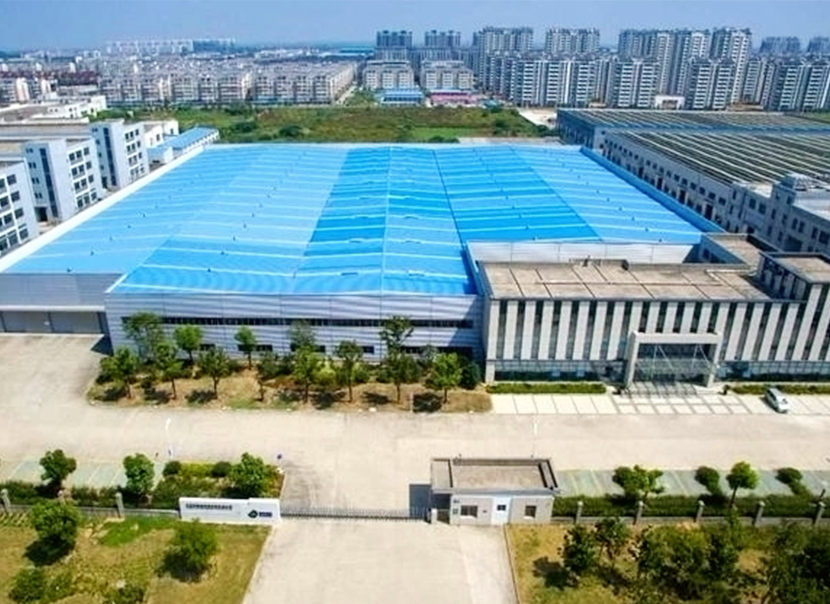Water plays several crucial roles in the rice noodle production process:
Dough Formation: Water is a primary ingredient used to form the dough for rice noodles. It hydrates the rice flour, allowing it to form a cohesive dough that can be shaped and processed.
Texture and Elasticity: The amount of water added to the rice flour affects the texture and elasticity of the dough and, consequently, the final rice noodles. Proper hydration helps achieve the desired texture, ensuring that the noodles are firm yet flexible.
Gluten-Free Binding: Unlike wheat-based noodles, rice noodles are typically gluten-free. Water acts as a binding agent in rice noodle dough, compensating for the absence of gluten and helping to hold the noodles together during cooking.
Extrusion and Shaping: Water is essential for the extrusion process used to shape the rice noodle dough. It lubricates the extrusion equipment, allowing the dough to flow smoothly through the machinery and take on the desired shape.
Cooking Properties: The water content of the rice noodle dough influences its cooking properties, such as cooking time and texture. Proper hydration ensures that the noodles cook evenly and retain their desired texture when boiled or steamed.
Moisture Control: Water content also affects the drying process of rice noodles. The dough must have the right moisture level to achieve proper drying without becoming too brittle or sticky. Control over water content is crucial for consistent drying and shelf stability of the finished noodles.
Hygiene and Safety: Water used in rice noodle production must meet strict hygiene standards to prevent contamination. It is essential for cleaning equipment, sanitizing surfaces, and maintaining overall cleanliness in the production facility to ensure food safety.
water plays a multifaceted role in rice noodle production, influencing dough formation, texture, shaping, cooking properties, and hygiene standards throughout the manufacturing process.
How is the production speed optimized in rice noodle production lines?
Optimizing production speed in
rice noodle production lines involves several strategies aimed at increasing efficiency without compromising quality. Here are some common methods:
Automation: Implementing automated systems and machinery can significantly increase production speed by reducing manual labor and streamlining processes. Automated equipment can handle tasks such as mixing, extrusion, cutting, and packaging with greater precision and efficiency.
High-capacity Equipment: Investing in high-capacity machinery designed specifically for rice noodle production can increase throughput and minimize downtime. Equipment such as extruders, steamers, and dryers with larger capacities can process larger batches of dough more quickly.
Continuous Production Flow: Designing production lines for continuous flow rather than batch processing can optimize speed by minimizing downtime between production runs. Continuous flow systems allow for a constant stream of dough to be processed without interruptions, leading to higher overall throughput.
Optimized Process Parameters: Fine-tuning process parameters such as dough hydration levels, extrusion speed, cutting frequency, and drying temperatures can help maximize production speed while maintaining product quality. Conducting regular process optimization studies can identify opportunities for improvement.
Reduced Setup Time: Minimizing setup and changeover times between different noodle varieties or production runs can help maximize production uptime. Quick-change features on equipment and standardized procedures for setup and cleaning can help reduce downtime associated with changeovers.
Personnel Training: Well-trained staff can operate machinery more efficiently, troubleshoot issues quickly, and maintain production lines at peak performance. Providing comprehensive training programs for operators and maintenance personnel can help optimize production speed and minimize downtime.
Supply Chain Optimization: Ensuring a steady supply of raw materials, packaging materials, and other necessary supplies is essential for maintaining continuous production. Establishing efficient supply chain processes and relationships with reliable suppliers can help prevent delays and disruptions.
Real-time Monitoring and Control: Implementing advanced monitoring and control systems that provide real-time feedback on key process parameters can help identify and address issues quickly, minimizing downtime and maximizing production speed.
